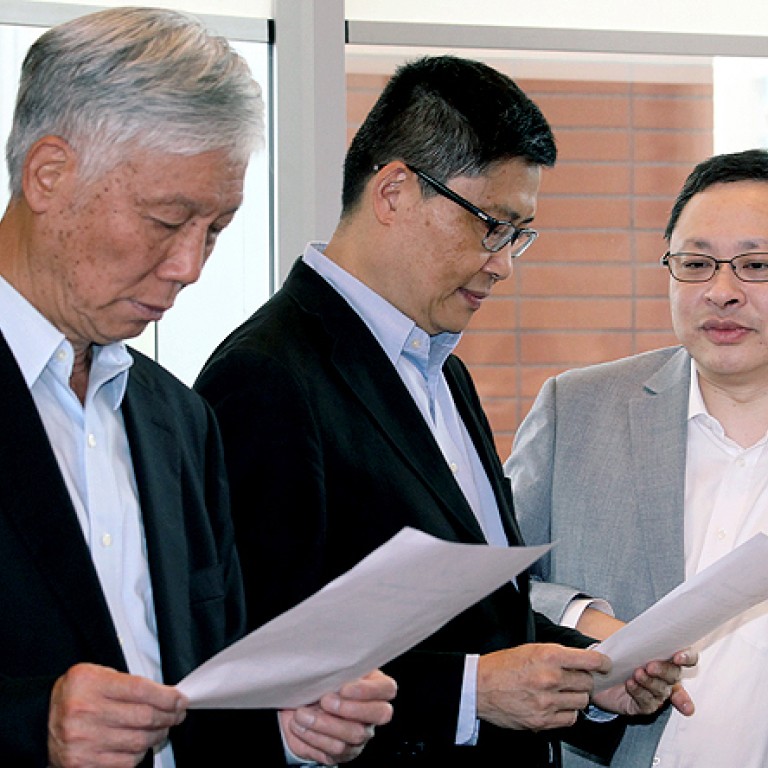
Update | Scholars find 15 plans for 2017 poll that meet international standards
International academics brought in by Occupy Central filter out ideas that fail to meet international standards for democracy ahead of vote
A group of international scholars has chosen 15 electoral reform plans they say meet international standards for universal suffrage.
The academics, experts in politics and constitutional law, were brought in by the Occupy Central pro-democracy movement to help filter different models for the 2017 chief executive election ahead of its third "deliberation day" on Tuesday. Up to 3,000 supporters will join the deliberation day and select three models to be put to a "civil referendum", an electronic poll open to all registered voters from June 20 to 22. Occupy will endorse the winner.
But Occupy - which has attracted international attention for its plan to rally 10,000 people to block streets if the government fails to come up with an acceptable reform plan - has been urged to delay the poll by the University of Hong Kong's law dean.
Professor Johannes Chan Man-mun warned that the vote could harm the chances of consensus being reached over a reform plan, which would need Beijing's approval, and support from at least a few pan-democrats to pass in the legislature.
But Occupy co-founder Dr Chan Kin-man said the vote must take place before July 1, the date of the city's main annual pro- democracy protest.
Occupy said yesterday that the academics had assessed 29 plans put forward as part of the government's consultation on electoral reform, which ends on Saturday. Of those, 15 met the standards established in the United Nations International Covenant on Civil and Political Rights and were in line with the Basic Law.
Just one of the chosen plans came from a Beijing loyalist: Professor Ho Lok-sang, a key member of the anti-Occupy group Silent Majority. Ho suggests that the nominating committee, the body empowered by the mini-constitution to pick candidates, should be made up of 1,800 people, a third directly elected.
Occupy founder Benny Tai Yiu-ting said more than 10 proposals by pro-Beijing groups were considered, but most did not meet democratic standards.
"An ultimate objective … was to ensure that in any election, there should be genuine choices," Tai said. "The international experts believed that [the plan by the Democratic Alliance for the Betterment and Progress of Hong Kong] would not be able to ensure voters have sufficient diversity of candidates."
The DAB plan would require candidates to win the support of more than half the nominating committee, raising fears candidates critical of Beijing would be "screened out".
Among the plans approved are several under which all 3.5 million registered voters could nominate candidates. Moderate plans from think tank Hong Kong 2020 and lawmaker Ronny Tong Ka-wah, which focus on making the nominating committee more representative, were also backed.
The story was amended on May 1 to reflect a change in Occupy Central organisers' plans about the electronic poll. An earlier version of the story said the poll was to be held on June 22. The organisers have decided instead to hold it from June 20 to 22.

